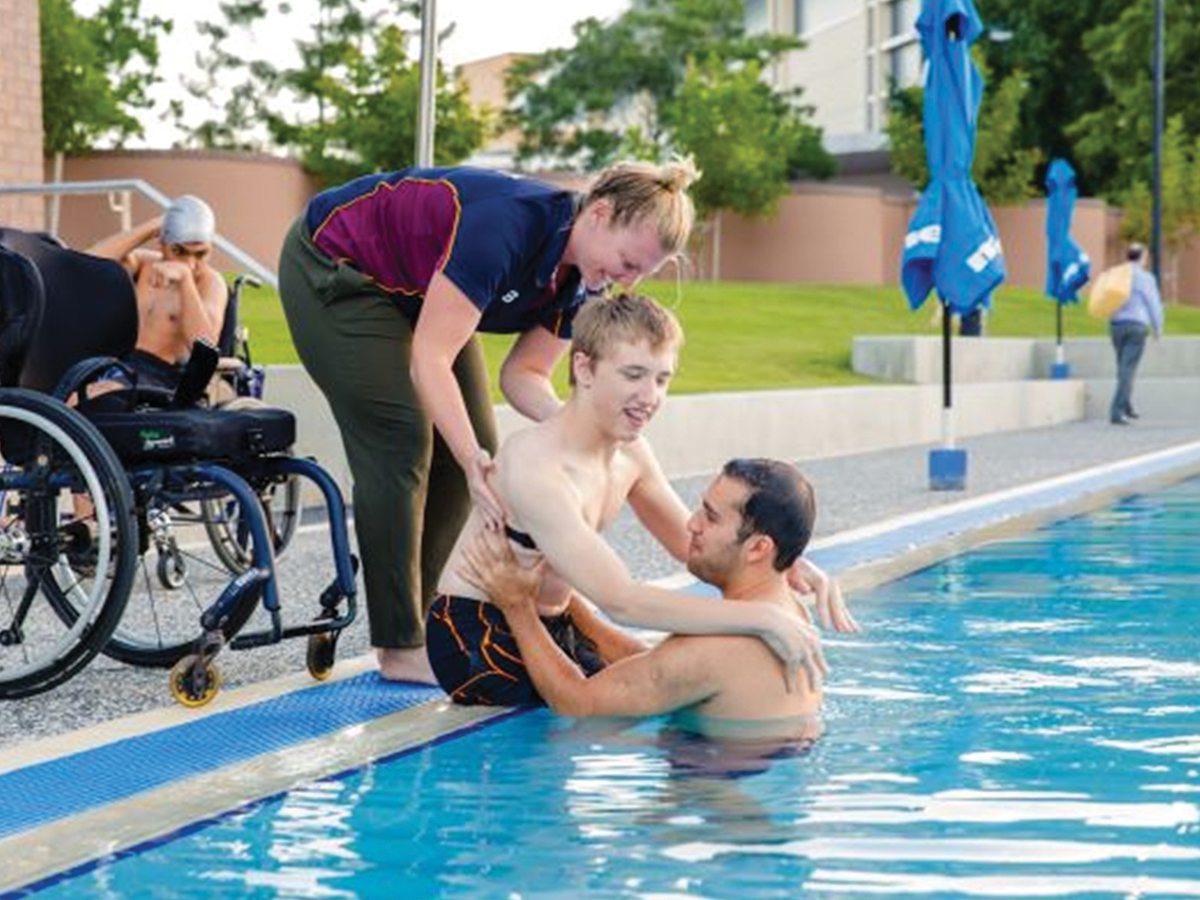Young people with cerebral palsy have seen some of their symptoms decline thanks to a swimming program developed by University of Queensland (UQ) researchers.
Professor Sean Tweedy from UQ’s School of Human Movement and Nutrition Sciences and the Queensland Centre for Olympic and Paralympic Studies leads the ParaSTART program, a longitudinal research program aimed at evaluating whether performance-focused sports training improves clinical outcomes for people with severe disabilities.
For this research, researchers chose people with no prior swimming experience and replicated the training that para-athletes go through when training for competition – complete with two-three training sessions each week, strength and conditioning work, diet and sleep.
The first intake saw three young people with severe cerebral palsy take part.
Those participants can now swim one kilometre in a training session, and have improved in swimming speed and distance, according to Tweedy.
“But there were also very important clinical improvements – all three athletes with cerebral palsy not only maintained, but improved their motor function, defying the typical decline associated with the condition,” he added.
“We now hope to secure funding to be able to investigate whether similar results are achieved by people with other diagnoses and in other sports. We are also interested in pursuing the upscale and dissemination of the ParaSTART program across Australia.”
The findings from the first 4 years of the program were published in the British Journal of Sports Medicine.

